17 results in Hersch Lauterpacht Memorial Lectures
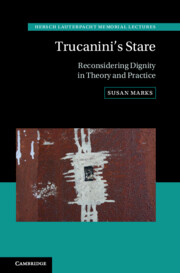
Trucanini's Stare
- Reconsidering Dignity in Theory and Practice
-
- Published online:
- 06 February 2025
- Print publication:
- 13 February 2025
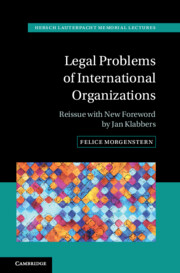
Legal Problems of International Organizations
- Reissue with New Foreword by Jan Klabbers
-
- Published online:
- 15 February 2024
- Print publication:
- 22 February 2024
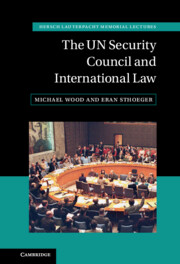
The UN Security Council and International Law
-
- Published online:
- 02 June 2022
- Print publication:
- 09 June 2022
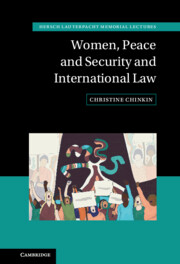
Women, Peace and Security and International Law
-
- Published online:
- 17 March 2022
- Print publication:
- 17 March 2022
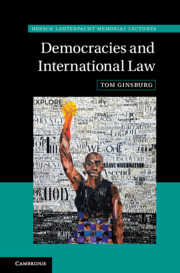
Democracies and International Law
-
- Published online:
- 09 September 2021
- Print publication:
- 30 September 2021
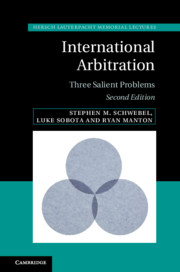
International Arbitration
- Three Salient Problems
-
- Published online:
- 09 January 2020
- Print publication:
- 23 January 2020
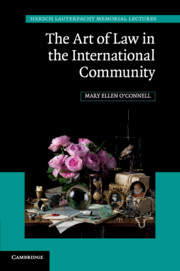
The Art of Law in the International Community
-
- Published online:
- 14 May 2019
- Print publication:
- 16 May 2019
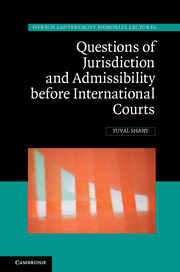
Questions of Jurisdiction and Admissibility before International Courts
-
- Published online:
- 05 December 2015
- Print publication:
- 03 December 2015
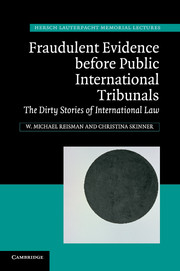
Fraudulent Evidence Before Public International Tribunals
- The Dirty Stories of International Law
-
- Published online:
- 05 June 2014
- Print publication:
- 08 May 2014
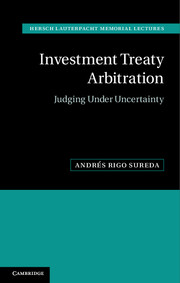
Investment Treaty Arbitration
- Judging under Uncertainty
-
- Published online:
- 05 May 2012
- Print publication:
- 16 April 2012
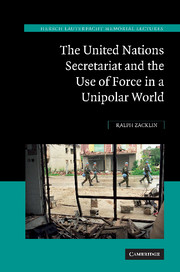
The United Nations Secretariat and the Use of Force in a Unipolar World
- Power v. Principle
-
- Published online:
- 07 September 2011
- Print publication:
- 04 February 2010
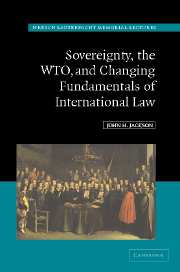
Sovereignty, the WTO, and Changing Fundamentals of International Law
-
- Published online:
- 29 March 2011
- Print publication:
- 27 March 2006
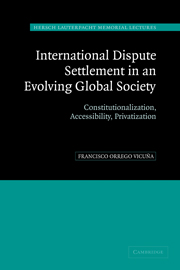
International Dispute Settlement in an Evolving Global Society
- Constitutionalization, Accessibility, Privatization
-
- Published online:
- 04 August 2010
- Print publication:
- 25 November 2004
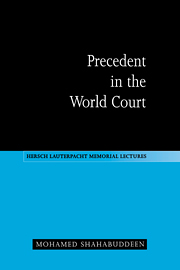
Precedent in the World Court
-
- Published online:
- 04 May 2010
- Print publication:
- 25 July 1996
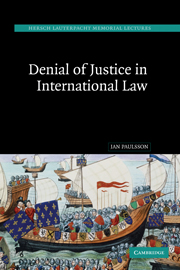
Denial of Justice in International Law
-
- Published online:
- 29 July 2009
- Print publication:
- 06 October 2005
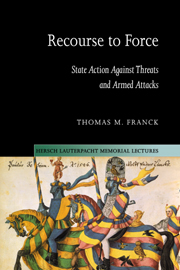
Recourse to Force
- State Action against Threats and Armed Attacks
-
- Published online:
- 17 July 2009
- Print publication:
- 24 October 2002
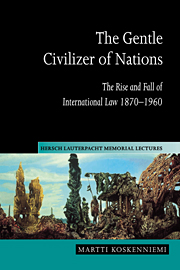
The Gentle Civilizer of Nations
- The Rise and Fall of International Law 1870–1960
-
- Published online:
- 06 July 2009
- Print publication:
- 29 November 2001

